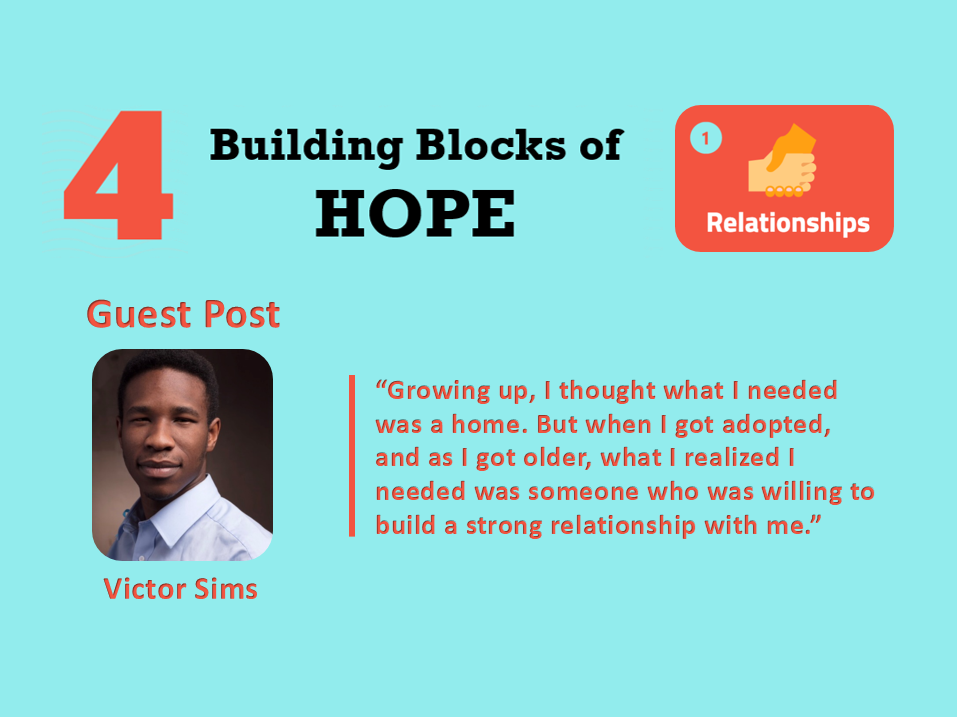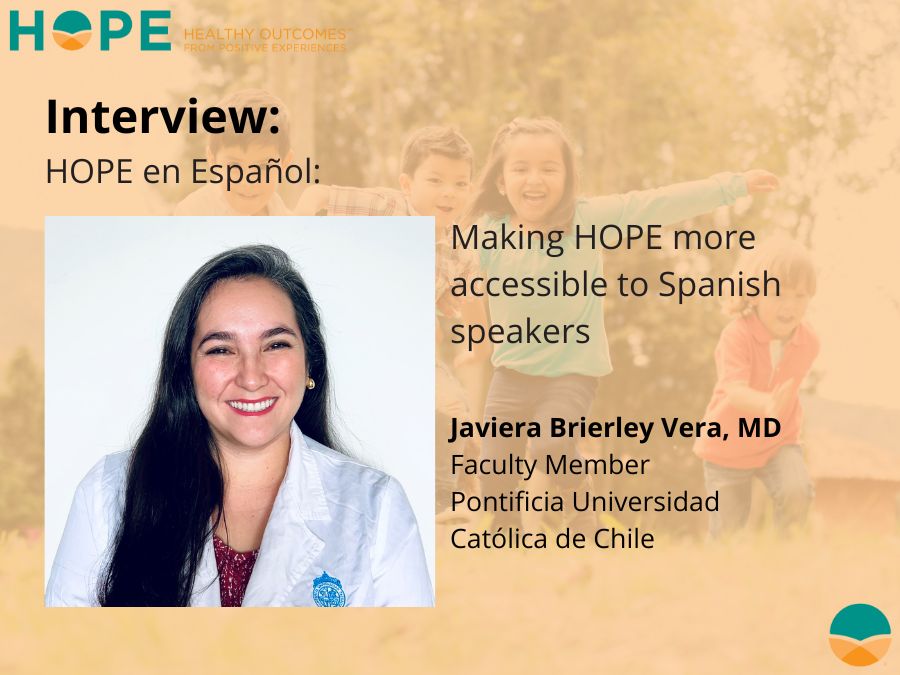
Today’s post is based on an interview with Victor Sims, an active advocate for children in foster care. Victor works as a case manager supervisor at SailFuture, won a 2020 Casey Excellence for Children Award, and is an American Bar Association Reunification Hero.
Please introduce yourself and your work for our blog readers.
My name is Victor Sims. I’ve lived in Florida my whole life, primarily in Polk County. I have been a child welfare advocate since I was 16 years old. I have done a lot [to push] for the Every Student Succeeds Act because of my lack of educational stability when I was in care. I currently work as a case manager supervisor for the teen division program at SailFuture. I work with kids who have both behavioral and mental health challenges that a lot of people are not able to meet.
Can you talk more about how you got started at 16?
When I was 16, I went through a crisis mentally. I got adopted when I was almost 12 years old, and I was so excited at that time, but I didn’t realize how being adopted was going to change my identity until about 16. Part of me wanted to still identify with being a kid that was in care. What better way to do that than try to improve this system I was in? It’s exactly why I like working with our teenagers. With them, I’m able to provide a living example of someone that is not a part of a statistic, someone who is genuinely excited about his past and doesn’t take [it] as a crutch, but [builds upon] those opportunities.
How do your own experiences in foster care inform your work as a case manager?
My parents’ rights were terminated when I was one year old. A baby is not hard to adopt—people usually [hope] to adopt a baby. However, I had siblings [with] different barriers to traditional families being able to care for them. I had a sister who was considered “slow,” and another was both deaf and epileptic. The system of care at that time was very big on sibling connections, presenting a barrier to me finding a forever family at a younger age. There is no reason why a child should be in the system of care any longer than they need to be. I always look at each child as their own individual person, and I say, what is in the best interest of this child, and not what is in the best interest of all of the siblings as a whole.
I also believe in true partnership. Whenever I get a case, one of the first things I try to do is talk to the parent and say, “My goal is to partner with you and strengthen your family. I’m not here to tell you what you’ve done wrong. What I can do is walk this journey with you and try to do whatever it takes for you to get your children back.” Then, I find families are more likely to interact with me. My goal is to know who they are. I can go to college and get my Bachelor’s and Master’s and PhD in Child Welfare, but nobody’s going to tell me what it’s like to interact with the Sims family. The only professionals in regards to that are the people in that family. I’m not worried about my Bachelor’s degree. I’m worried about what it takes to get you and your family back together.
What specific changes to the system do you advocate for?
The Family First Prevention Act was one of them. Keeping families together when we can, and when it’s safe to do so. Removing a child from an environment they think is safe may not be in the best interests of that child. We also deprive them of different cultures that they’re more likely to engage in with their biological family.
There’s a lack of social capital within the child welfare system. One thing that I heard in training was: don’t get connected. [I’m] getting rid of the idea that we can’t connect, can’t treat human beings like human beings. The mom can’t get to her counseling appointment? Well, what are you doing to help her get there? Our case managers are great, they have a hard job, and 98% of the time, they’re so focused on the child, they forget that the parent’s a key component to meeting the child’s needs. We have the therapy provider for the child, we have the school, the play therapist, all those different professionals in this child’s life. For the parent, we’ve got the safety monitor, the parenting provider, the substance abuse coach, the AA mentor. All these different people assigned to the parent. People are either focusing really hard on the child or on the parent. How do you meet the needs of the parents, as if the parent was a child, basically?
What positive childhood experiences helped you overcome adversity?
Growing up, I thought what I needed was a home. But when I got adopted, and as I got older, what I realized I needed was someone who was willing to build a strong relationship with me. I needed someone that was going to tell me at night, “It’s ok that you made a mistake today, we’re going to get up tomorrow, and you can still be a good person.” I use it on my job with our kids. When we first started off as an agency, we rewarded kids for doing everyday tasks. I was the one who believed, you’re not getting a star, you’re just a good person. I would tell them that all the time. You’re just a good person, that’s why you did it. You don’t need an award to be a good human being.
Look at the kids I serve, the teenagers who have behavioral health challenges. A lot of them have Department of Juvenile Justice [DJJ] interventions. No one has told them that they’re a good person. What, they’ve stolen a car? They pulled a knife on their father? All they are now is a criminal in everybody’s eyes. With a lot of my teenagers, I’m like, “[Ok], you did that. Anyhow, this is what we’re going to do going forward. Instead of stealing a car, how about we get you a job so you can just buy a car? I’ll teach you how to drive my own car.” In the end, you trust them, and then they do the right thing.
Even our kids who’ve been removed from their parents, it’s by no fault of their own. Yet, when they come into the system of care, and they start wracking up these DJJ charges, we forget that. A lot of these charges came from people who we trusted to take care of our children when they’re in our system of care. The answer to disciplining children in the child welfare system is calling the cops on them. Parents don’t call the cops on a child when they steal something out of their kitchen. All of a sudden, this child has petty theft. If [a youth] had a strong relationship with the provider that’s supposed to be meeting their needs in their time of crisis, and meeting them with compassion, they’re more likely to see success.
I also want to touch on the equitable environment. When I’m looking at equitable environments for our kids, I’m looking at what the child wants. When I was in care, I experienced some racial slurs in one of my homes, and from then on, I was like, “I don’t want to be adopted by a Caucasian family, I want to be adopted by a Black family. I don’t want to be walking in public, people knowing that I was adopted just because I’m with a White family.” That’s what an equitable environment was to me. It wasn’t living in a Caucasian home that had all the money in the world, but it was living in a home in which I could taste oxtails and collard greens, and to the level that the African American community would have made it. I started verbalizing that need. What happens? You find a family that meets that need. Oftentimes, we do it backwards.
Can you talk more about equity and connections with policing?
We go back to the statistics in regards to our children racking up charges while they’re in the system of care. We’ve introduced them to the Department of Juvenile Justice, they get those labels and believe them, they begin living up to those labels, and then they enter the Department of Corrections years later, and then we see the rate of recidivism or generational Department of Children and Families Services intervention. All of it touches each other. 53% of African American boys and girls will have some kind of interaction with the child welfare system. [All children] have a 37% chance of interacting with the child welfare system (source). It’s a huge disparity. No one talks about it, but there’s a lack of cultural understanding. And a lot of [families in] the communities in which children are removed from are barely making more than 50k a year. We’re not meeting that root cause.
I didn’t understand at first why people were saying “defund the police.” Then you read a little deeper. It’s saying we need to reallocate resources. [In] African-American communities, we need more social workers, more mental health therapists, at an affordable or pro bono rate. Then we’ll see less Department of Children and Families interaction, less [of the] Department of Juvenile Justice, the Department of Corrections, and we’ll see communities really believe that it takes a village to support any human being.
True community policing is knowing the people you’re serving. I look at the job my staff and I do. If I were to say, “I don’t really know the neighbor of the [family] that I reunified this child with,” or, “I didn’t understand the streets,” that would be a problem, because I can’t truly say I’m keeping that child safe. Your goal is to develop a relationship. One of my clients who I served reached out to me on his 18th birthday. He’s like, “Man, I just want to say I love you.” I was like, “Wow. You were a difficult child. I didn’t think you even knew what [the] word love was.” But [he reached out] because every day, I showed up and cared for him as if he were me.
This interview was conducted, transcribed, and compiled by Chloe Yang, Yasaman Salon, and Esther Sokoloff-Rubin.


